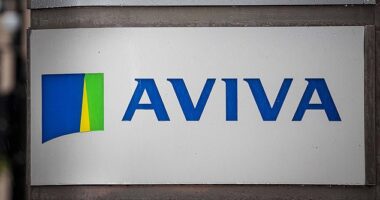LOW income households struggling to make ends meet can get extra help this year worth thousands of pounds.
Millions are being clobbered by spiralling bills as a cost of living crisis is leaving people unable to pay their way.
Rocketing energy bills have left six million households in debt with their energy supplier.
And prices are only set to increase – the boss of Ofgem predicted that bills could hit £2,800 in October.
Households are set to pay £271 more for their groceries, while drivers are being hit with soaring fuel prices at the pump.
If you’re struggling to make your cash spread to cover costs, here’s the extra help you can get on benefits.


£650 cost of living payment
Eight million households on means-tested benefits will get a £650 cost of living payment.
The help was announced earlier this week by the Chancellor as part of a bumper £15billion package of energy bill support for struggling households.
The payments will go to everyone on means-tested benefits, including universal credit, pensions credit, housing benefit, jobseekers’ allowance and income support.
The Department for Work and Pensions will make the payment in two lump sums – the first £325 from July, the second £325 in the autumn.
Most read in Money
You will need to be on eligible benefits or have begun a successful claim which is later, as of May 25 2022 to get the first payment.
£150 disability payment
Also announced under Rishi’s cost of living crisis package was £150 which will be given to six million people with disabilities getting means-tested benefits.
This is to help them pay for any energy intensive equipment they have, which could be driving up their bills.
Many disability benefit recipients also get means tested benefits – so this £150 sum is separate to the £650 payment you’ll get.
And like the £650 cash boost, the £150 help will be exempt from tax, will not count towards the benefit cap, and will not have any impact on existing benefit awards.
Advance payments
Universal Credit claimants have a five week wait from their claim being accepted to actually getting the cash.
But if you don’t have enough to live on during this period you can ask for an advance payment to get some money straight away.
This means you can cover essential expenses such as food and rent.
You can also get an advance payment if you are already on Universal Credit and your circumstances change, meaning you’re entitled to more money.
However, both kinds of advances will have to be repaid in instalments from your future payments.
To apply, you can speak to your Jobcentre Plus work coach, apply through your online account or call the Universal Credit helpline on 0800 328 5644.
Budgeting advance – £812
Another kind of advance payment can help you with budgeting, and you could get a maximum of £812.
The payment is to help with emergency household needs such as replacing broken white goods.
You can also use it for costs associated with work, such as uniform for a new job or travel to an interview.
It is a loan so you will have to repay it through your Universal Credit payments in the future.
The minimum amount you can borrow is £100.
Single claimants can get £348, couples can claim up to £464 and if you have children you could get £812 in total.
Warm Home Discount – £140
Struggling families can get £140 off their energy bills through the Warm Home Discount.
The scheme has closed but will open in the autumn and the discount has to be applied by the end of March each year.
That means you have a little while to wait before you get the help – but it’s good to log the date in your diary ahead of time.
The way it is run is changing in the autumn, with different eligibility criteria and a £10 hike.
Households will get £150 rather than £140 in the next batch of payments.
There are two categories of people who can get the discount.
Some people are in the “core group” and are automatically eligible for the help and don’t have to apply.
That includes people who get the guarantee credit element of pension credit.
But others will have to make a claim to their supplier and the eligibility criteria differs depending on which firm you’re with.
Previously, people who claimed Disability Living Allowance or Personal Independence Payments could get the cash if it was included in their supplier’s criteria.
But now they will have to claim another, means-tested, benefit to qualify.
From October, there will be a second “core group” of people benefits including housing benefit and Universal Credit.
Those households will have the level of their energy costs taken into account before the payment is granted.
Look out for announcements from your energy supplier for more information about the eligibility criteria and to check when applications open later this year.
Council tax discount
Some households on low incomes could be eligible for a discount on their council tax bill.
As one of the biggest bills for households and the worst consequences if you get behind, finding out if you can get a reduction could help you get by.
In some cases you could even get your bill reduced to zero and with the average bill for a band D home at £1,898, that could save a a significant sum.
To find out if you’re eligible and apply you’ll need to contact your local council – you can find yours using the gov.uk tool, just enter your postcode.
Rent help
An investigation by The Sun found that councils have given payments worth as much as £32,000 over the past year to the most hard-up tenants trying to keep a roof over their heads.
But this is by far the biggest amount and the average amount is around £965, after we asked around 30 councils.
Discretionary Housing Payment (DHP) is a little-known pot of money handed out by councils to cover shortfalls in rent and help with deposits.
The financial support is available to those getting benefits for housing in England and Wales.
Anyone claiming Housing Benefit or the Housing Element of Universal Credit could be eligible if they are struggling with rent costs.
Each local authority dishes out DHP cash to those in need on a case-by-case basis, and the amounts available can vary.
So you’ll need to speak to your council to see what’s available where you are.
You won’t need to repay the cash and you could get a lump sum, or ongoing payment.
Household Support Fund
Another scheme you could tap into via your local council is the Household Support Fund.
The total amount of money invested into this pot of cash is £1.5billion since the scheme launched in October last year.
It was boosted by £500million yesterday by Chancellor Rishi Sunak as part of an emergency package of support to help the nation through the cost of living crisis.
Councils get a slice of the funding to dish out to hard-up families in their catchment area.
The fund is designed to help those in most need with payments towards the rising cost of food, energy, and water bills.
Reading Council for example, is giving pensioners energy vouchers worth £98, and families a sum of £49 to help cover similar costs.
Meanwhile, eligible residents in Norfolk can get £120 in food vouchers to cover meals for kids, with the council’s latest hand-out.
It’s best to check in with your own local authority to find out what may be up for grabs as well as how you can apply.
Energy bill grants
Energy suppliers offer cash grants to those hardest hit by bills rises.
For instance British Gas is giving out up to £750 through its hardship fund – and you don’t even have to be a customer.
But the amount can vary according to your supplier and your circumstances.
It’s not just Universal Credit claimants who can get the help, but if you’re on the benefit and have a low income you could qualify.
Ask your supplier what’s on offer and how to apply, or check here:
Support for water bills
There are a number of schemes you can apply to in order to slash your water bills.
Lower income families can apply to the WarerSure scheme to save hundreds of pounds on their bill each year.
You could be eligible if you claim Universal Credit or a number of other benefits – and you can cap your bill.
The Consumer Council for Water estimates you’ll save £270 on average.
But depending on who your supplier is, you could save much more – Yorkshire Water said its customers can save £534 a year.
You have to hit certain criteria to qualify which you can check out here.
As well as offering the WaterSure scheme to struggling households, suppliers offer their own help schemes too.
Many water companies offer help to customers who cannot afford to pay their bills.
Exactly what help you can get and who is eligible will depend on who your supplier is.


But Yorkshire Water for example says customers can get make an average saving of £212 from its WaterSupport scheme.
Check in with your supplier to find out exactly how much you could get.
We pay for your stories!
Do you have a story for The Sun Online Money team?
This post first appeared on thesun.co.uk










